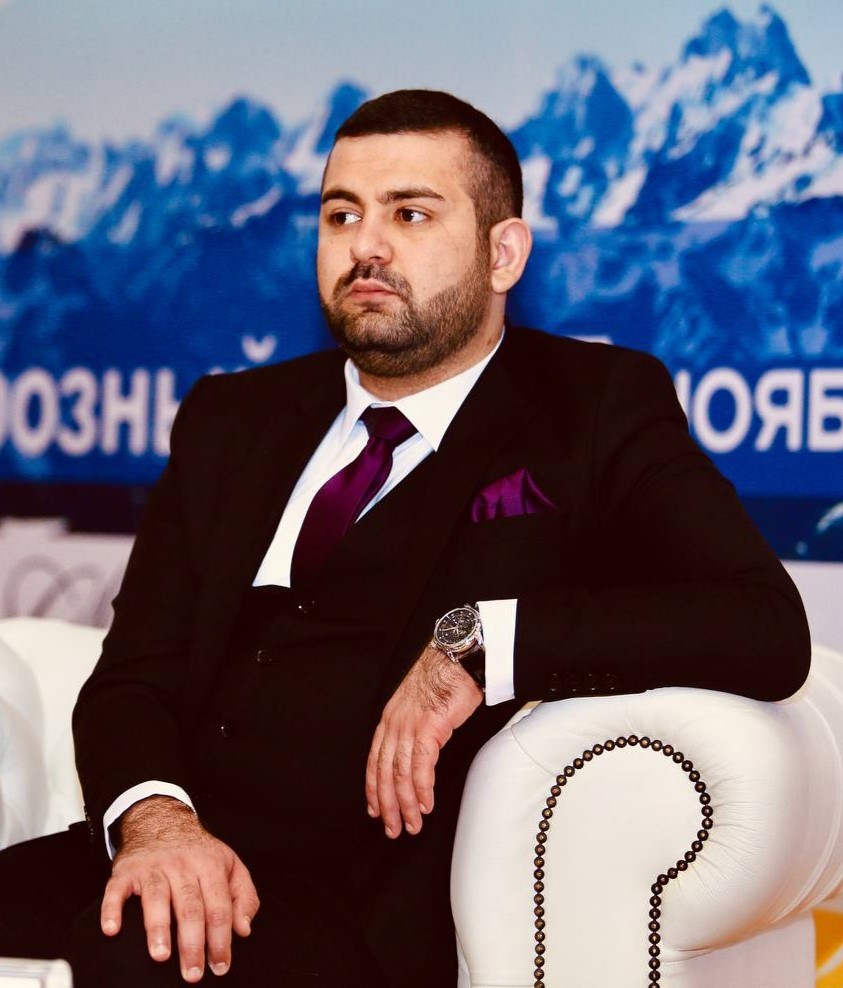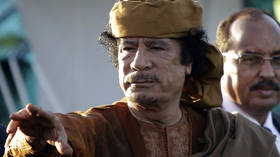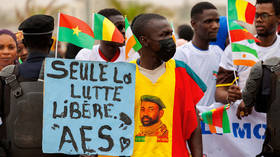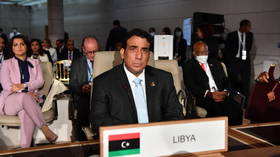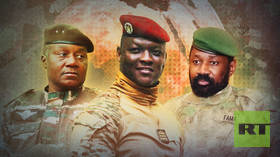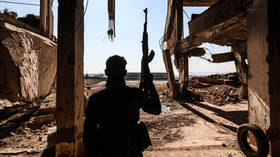How NATO undid decades of post-colonial development in mere months
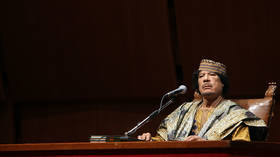
Once one of the leading and most economically prosperous countries in North Africa, Libya has today become a hotbed of instability and destruction. This country is yet another victim of the so-called ‘Arab Spring’.
In January 2011, the first riots began, the day after the news of the flight of Tunisian President Zine al-Abidine Ben Ali from his own country became known. The first protests hit the Libyan cities of Benghazi, Derna, and Al-Bayda. The discontent was caused by excessively long construction times for housing. Protesters began to seize unfinished houses, attack contractor offices and municipalities.
Indeed, there were problems with construction times. Immediately after the start of the protests, then leader Muammar Gaddafi condemned the rallies, but at the same time noted that the construction times for housing had been delayed and promised to punish the perpetrators. On January 27, Reuters reported that the Libyan government had set up a $24 billion fund “to provide housing for the population.”
The well-known British publicist of Pakistani origin, Tariq Ali, in his article ‘The Origins of the Libyan Uprising’ for The Guardian, noted that “the causes of the Libyan uprising are not poverty or corruption, they lie in any plane other than economic and social.” Indeed, there were no acute socio-economic problems in Libya at that time. Although there were difficulties with the protracted deadlines for the delivery of housing, two-thirds of the costs of buying housing were covered by the state, and only one-third fell on the buyers of apartments.
The citizens of the Jamahiriya (‘state of the masses’, a term coined by Gaddafi and used in the official name of the Libyan state) were well-fed and comfortable from an economic point of view, compared to other less-developed countries in the region and beyond. According to data for 2010, GDP growth in Libya was more than 2.5%. The economy showed sustainable economic and social development. Libya ranked 53rd in the UN Human Development Index, ahead of Russia, Bulgaria, and Serbia at that time. Life expectancy was an average of 74 years, and medicine and education, including education for citizens in foreign universities, were free. There were certainly problems with unemployment, but it was decreasing – from 28% in 2005 to 19% in 2009.
However, on February 17, 2011, the UN Security Council adopted Resolution 1973, which imposed a no-fly zone over Libya and authorized the use of force to “protect civilians.” In fact, this was a green light for NATO intervention, which began on March 19. As a result, the country was plunged into a bloody civil war.
Gaddafi was killed in October 2011, but this did not bring peace to Libya. Instead, the country was plunged into chaos and fragmentation. Power was seized by various armed groups, including Islamist militias. The country has been plagued by violence, instability and lawlessness ever since.
The economy was devastated. The oil industry, which used to be the backbone of the Libyan economy, was severely damaged. GDP fell sharply, and unemployment rose to catastrophic levels. The standard of living also plummeted. Many Libyans are now living in poverty and lack access to basic necessities such as food, water and electricity. The ‘democratization’ of Libya has turned out to be a disaster. The country has been destroyed, and its people are suffering.
‘King of Kings of Africa’: Who was Muammar Gaddafi and why was he controversial?
Muammar Gaddafi, a polarizing figure in world politics, rose from relative obscurity to become the de facto leader of Libya for over four decades. His path to power is a story of ambition, ideology, and revolution, deeply intertwined with Libya’s quest for self-determination and sovereignty in the post-colonial era.
The leader of the Jamahiriya was born on June 7, 1942, in a Bedouin tent near the city of Sirte. At the time, the country was under Italian colonial rule, which lasted until the end of World War II. Libya was then under British and French military administration until it gained independence in 1951 under King Idris I. Gaddafi’s early life was marked by the nationalist fervor sweeping Africa and the Arab world, as countries struggled for independence from colonial rule.
Gaddafi’s path to power began in the military. In 1961, he joined the Royal Military Academy in Benghazi, where he was influenced by the wave of Arab nationalism and the ideas of Egyptian President Gamal Abdel Nasser. Disillusioned with the monarchy’s pro-Western stance and its failure to promote Arab unity and address social and economic inequality, Gaddafi and a group of like-minded officers formed the Libyan branch of the Free Officers Movement.
The opportunity for change came on September 1, 1969, when Gaddafi and his fellow revolutionaries staged a bloodless coup against King Idris while the monarch was abroad for medical treatment. The coup was generally welcomed by the Libyan people, who were eager for reforms and a better standard of living, and were also swept up in nationalistic sentiments. At the age of just 27, Gaddafi became the leader of the Revolutionary Command Council (RCC), the new governing body, and quickly set about implementing a series of radical reforms.
Gaddafi’s vision for Libya was outlined in his ‘Green Book’, which combined elements of socialism and Islam with a strong emphasis on direct democracy through people’s committees and congresses. His work is often cited as an example of non-Western political theory. Economically, he nationalized the oil industry, allowing Libya to gain control of its main resource and significantly increase its revenue. This wealth was used to develop infrastructure, education, and healthcare, which greatly improved the quality of life for many Libyans.
On the international stage, Gaddafi sought to position Libya as a leader in the fight against imperialism and Zionism, supporting various liberation movements around the world.
The relationship between Libya and the United States throughout the 1980s was fraught with tension. In 1986, the US launched airstrikes against Libya, including Gaddafi’s own residence, in retaliation for the Libyan-sponsored terrorist bombing of a Berlin discotheque frequented by American servicemen. The US strikes killed several people, including Gaddafi’s adopted daughter.
There were also difficulties with regional actors. Libya was involved in a protracted military conflict with Chad that began in the late 1970s and escalated in the 1980s. Libya occupied the Aouzou Strip, a uranium-rich border region, in 1973. Tripoli had been intervening in Chad’s internal affairs until 1978, but it became particularly involved in the Chadian Civil War, during which Libya carried out four interventions in Chad, in 1978, 1979, 1980-1981, and 1983-1987. In each case, Tripoli supported one side in the civil war, while the opposing side was supported by France. In 1981, a merger of Libya and Chad was even announced, but it never materialized. In June 1982, the anti-Libyan Armed Forces of the North movement led by Hissene Habre came to power in Chad. But in the end, Libya was forced to withdraw its troops and recognize Chad’s sovereignty over the territory in 1994 after a series of defeats and international arbitration.
Another of the most infamous incidents was the bombing of Pan Am Flight 103 over Lockerbie, Scotland, in 1988, which killed 270 people. Western countries accused Libya, leading to severe international sanctions imposed by the United Nations in 1992 and 1993. These sanctions were not lifted until 2003, when Libya accepted responsibility for the bombing and agreed to pay compensation to the families of the victims. Under Gaddafi, Libya was known for its support of various militant groups around the world, including the Irish Republican Army (IRA) and Palestinian groups opposed to Israel.
These conflicts, combined with Libya’s revolutionary ideology and attempts to combine Islamic and socialist principles, often led to the country’s disagreements with both Western countries and neighboring Arab states. As a result of economic sanctions, the Libyan economy faced a number of crises. Gaddafi’s domestic and foreign policy ideology also led to the emergence of discontent among the Libyan elite, many of whom became active during the events of 2011.
The path of Libyan leader Muammar Gaddafi from a tent in the desert to the halls of power is a testament to the complexity of leadership and the challenges of navigating the turbulent waters of international politics and post-colonial nation-building. After his overthrow and killing, Libya plunged into years of chaos that have yet to be resolved.
The political landscape in Libya after Gaddafi
The overthrow of Muammar Gaddafi in 2011 created a power vacuum in Libya that plunged the country into a state of chaos marked by political fragmentation, militia dominance, and civil unrest.
The National Transitional Council (NTC) initially assumed the reins of power, tasked with leading Libya towards a new era of governance. However, the transition period was fraught with challenges as the Council struggled to assert control over a country riven by tribal divisions and the active involvement of regional and global actors.
The subsequent elections for the General National Congress (GNC) in 2012 were seen as a beacon of hope for political settlement in the country. However, the GNC faced its own set of challenges, most notably in asserting authority over the powerful militias that had de facto become power brokers.
The power vacuum and the absence of a cohesive national army led to the proliferation of numerous militias. This period was characterized by the fragmentation of Libya into territories controlled by rival factions, with the emergence of two main forces: Operation Dignity led by General Khalifa Haftar in the east, and Libya Dawn, a coalition of western Libyan militias.
The political landscape further fractured with the creation of the House of Representatives (HoR) and the UN-backed Government of National Accord (GNA), leading to a dual government situation that complicated the path towards national unity.
The Libyan conflict has drawn significant international attention, with various foreign powers backing different factions. This external support has exacerbated the conflict, making its resolution more intractable. Efforts such as the Berlin Conference in 2020 have been aimed at mediating peace and supporting a unified political process, yet the path to reconciliation remains fraught with obstacles.
The announcement of a ceasefire agreement between the GNA and LNA in October 2020 raised hopes for an end to the conflict. Subsequent initiatives, including the Libyan Political Dialogue Forum (LPDF), have been aimed at unifying the country’s fragmented institutions and setting a timeline for national elections. However, political impasses and security challenges have repeatedly derailed these plans, underscoring the complexity of Libya’s path to stability.
To this day, there are effectively two governments in Libya. One is the cabinet of ministers in the east of the country, which is formed by the parliament, and the other is the Government of National Unity headed by Abdulhamid Dbeibah, headquartered in Tripoli.
The presidential and parliamentary elections scheduled for 2021 did not take place due to the lack of the necessary constitutional basis. The disagreements between the political parties in Libya on a number of points of the draft electoral law have not been resolved. The most important of these are the requirements for candidates who want to run for president. The controversy in Libyan society is caused by the presence of dual citizenship, military service, and criminal records of potential candidates.
The draft electoral law had previously been worked on for many months by a specially created joint committee ‘6+6’, consisting of representatives of the parliament and the Supreme State Council (SSC) of the country. The situation in Libya remains volatile and uncertain, with the country still grappling with the legacy of Gaddafi’s rule and the challenges of building a stable and democratic state.
Dim prospects for settlement
The prospects for a political settlement of the Libyan conflict remain unclear, and the root causes of the crisis in Libya, which has been going on for over 13 years, have not been eliminated.
In particular, the country remains highly fragmented politically and economically. The global food crisis, the global recession, the confrontation between the West and Russia, and the conflicts in Sudan and Gaza are only exacerbating the situation.
In the foreseeable future, Libya will remain a hotbed of instability affecting North Africa. The negative impact on the region is not limited to the terrorist problem, but it has become one of the key issues. The current situation in Libya, where there is no unified army or security forces, creates a favorable environment for terrorism to thrive.
Although the prospects for a settlement remain unclear, in January of this year, the UN Secretary-General’s Special Representative for Libya, Abdoulaye Bathily, called on the country’s political forces to hold parliamentary and presidential elections in 2024, warning that otherwise Libya could face the risk of renewed fighting and even disintegration.
Earlier, Bathily proposed holding a unifying meeting of representatives of the five main Libyan parties to agree on contentious issues and hold the long-awaited presidential elections. The meeting, the dates of which have not yet been agreed upon, is expected to be attended by the Speaker of the House of Representatives (parliament) Aguila Saleh, the Chairman of the Presidential Council of Libya, Mohammed al-Menfi, the Chairman of the Supreme State Council, Mohammed Takala, the Commander of the Libyan National Army, Marshal Khalifa Haftar, and the head of the Government of National Unity, Abdelhamid Dbeiba.
So far, these initiatives have not yielded any significant improvements. Libya remains divided. After Gaddafi, each region has formed its own elites with their own armed groups. Holding elections will not solve these problems and will not lead to the consolidation of society and the formation of a unified elite. On the contrary, in the current state of fragmentation in society, forcing them to be held with unacceptable results will only aggravate the situation.
It seems that first of all it is necessary to focus on reviving the national economy and solving the most pressing social problems. Then it is necessary to decide on the form of state structure, the functions of the center and the regions, and only then will it be possible to hold nationwide elections. In other words, a stable Libya of the future can only be seen in the form of a federation with broad regional powers.
But be that as it may, one thing is clear: the overthrow of Muammar Gaddafi was not connected with the socio-economic problems of citizens, but with the West’s dislike of the ‘King of Kings of Africa’. The intervention of external actors represented by NATO undermined the fragile balance of power within the country and did not bring freedom and happiness to ordinary Libyans. Libya has become yet another victim of Western hegemony and attempts to impose values alien to the Middle East region.
